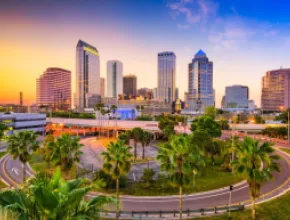In an industry conference call on August 24, U.S. Travel Association President Roger Dow shared some key information on the industry’s downturn following the tragic attacks of Sept. 11, 2001—and outlined some ways in which his organization would like to change the current state of travel to and in the U.S.
Regarding the profound negative effects from the incidents of 9/11, Dow somberly reflected that “it could have been any one of us on one of those planes,” and that the travel industry was affected more severely than any other sector.
“We were on our knees within an hour,” he remarked.
The statistics shared during the call succinctly illustrate the profound fallout, although there are also some positive figures in the mix:
· Business travel was devastated, with total volume declining 21 percent between 2000 and 2010, which Dow partially attributed to the meetings crisis of the late 2000s in addition to the 9/11 attacks.
· International travel reflects a gigantic lost opportunity for the U.S. economy. While global ‘long-haul’ travel expanded by 40 percent from 2000 to 2010, overseas travel to the states grew just 2 percent. If America had simply kept pace with the world’s growth in long-haul international travel, 78 million additional travelers would have visited the U.S. and added $606 billion to our economy.
· Leisure travel was more resilient than business, increasing 17 percent in the 10 years since 9/11 despite a few years of negative growth. A slow-but-steady increase of about 2 percent a year is anticipated between now and 2014.
With increased security hassles a prominent ongoing side-effect from 9/11, Dow and the U.S.T.A. are advocating a trio of principles to ‘strengthen security and eliminate barriers that discourage travel to and in the United States.’ Here’s a quick overview:
1. Reduce Traveler Wait Times
Maximize efficiencies in security procedures to encourage the movement of people and commerce.
Goals include reducing TSA checkpoint delays to 10 minutes or less and decreasing Visa wait times to 10 days or less.
2. Improve Customer Service
Government’s level of customer service should match private sector benchmarks and practices.
Goals include engaging the private sector to train officers in customer service, and making online consular services more user-friendly.
3. Eliminate One-Size-Fits All
Use risk-based approaches to security that maximize resources on the highest level threats.
Goals include establishing a nationwide ‘trusted traveler’ program and streamlining the Visa process for repeat visitors.





